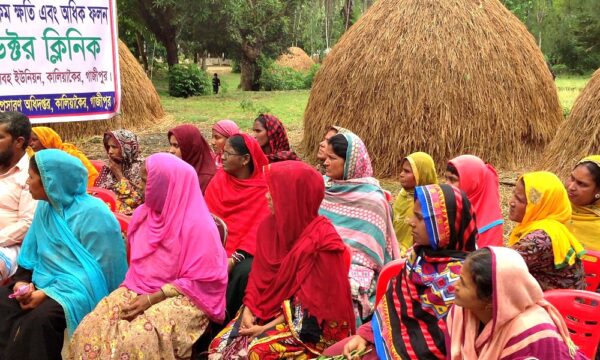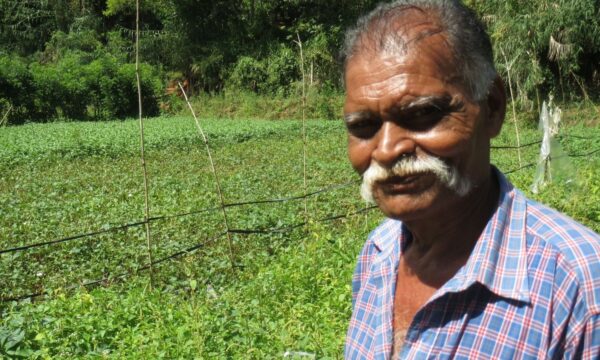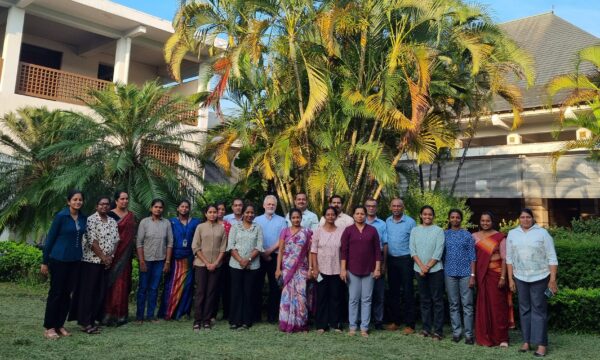
Photo: Tweetspeak Poetry, Flickr (CC BY 2.0)
International Tea Day is observed annually on 15 December, and aims to raise awareness of the impact of the global tea trade on the farmers and agricultural labourers who produce tea. It has been celebrated since 2005 in tea producing countries such as Bangladesh, Sri Lanka, Nepal, Vietnam, Kenya, Malawi, Malaysia, Uganda, India and Tanzania – all of which are countries where Plantwise operates.
The three women in the photo are tea pickers from Sri Lanka. Anyone who has visited the country will have seen the large commercial tea farms, but smallholders also make a major contribution to tea production in Sri Lanka. Regulated by the Tea Smallholding Authority, they sell tea leaves from their 0.5-2 acre plots to the big tea companies.
Tea blister blight is the main problem for tea farmers in Sri Lanka. Last year Punchi, a tea grower in Nuwara Eliya, Central Province, brought a diseased tea leaf into her local plant clinic . The plant doctor was able to diagnose blister blight and recommend how to manage the problem. Punchi left the clinic with a new hope that she could stop the disease from spreading and save the rest of her tea crop for selling to the tea companies. If you enjoy a hot cup of tea today, think of Punchi and the thousands of tea growers like her around the world who have made it possible.
You can find out more about blister blight by reading the Plantwise technical factsheet on tea blister blight.
Related News & Blogs
Most read blogs of 2025
As 2025 comes to a close, we’ve tallied the numbers to reveal the top 10 most read blogs on the PlantwisePlus Blog this year, plus a few firm favourites! Our most read blogs feature voices from those benefiting from our work, as well as crop pest guide…
17 December 2025





